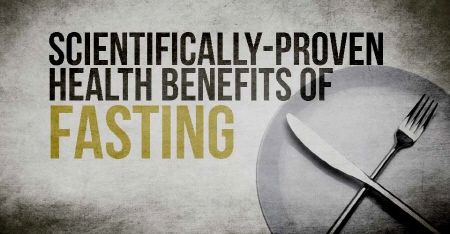
   |
[Headlines] (HL-의학/건강/운동) Fasting May Help Your Brain
최고관리자 | 18-05-22 10:36

More than one billion Muslims around the world observe Ramadan, Islam’s holy month. Fasting during Ramadan is a requirement for believers. This means they are barred from having sex, smoking, drinking and eating from sunrise to sunset. Today, we talk about fasting involving only food. Apart from spiritual or religious reasons, what effects does not eating have on human health? A team of researchers in the United States says fasting is good for our brain. Mark Mattson is a neuroscientist at Johns Hopkins University in Baltimore, Maryland. He and others have studied how dietary restrictions might protect your brain from neurological diseases that get worse over time. Two examples of these diseases are Alzheimer’s and Parkinson’s. His team found that controlling and restricting calories may improve a person’s memory, emotions and state of mind. Mattson says his studies are built upon years of research that have confirmed links between how many calories a person eats and mental ability. Calories are a measure of energy in food.
* Muslim = 이슬람교도, 회교도/ observe = (축제, 생일 등을) 축하[기념]하다, (의식, 관습 등을) 지키다/ Islam = 이슬람교; 이슬람 세계/ holy month = 성스러운 달/ fasting = 단식, 금식, 절식/ requirement = 필요조건, 요건/ bar sb from ~ = ~을 금지하다/ from sunrise to sunset = 일출에서 일몰까지/ apart from ~ = ~외에도[뿐만 아니라], ~을 제외하고/ spritual or religious = 정신적(영적) 또는 종교적/ effect = 영향, 효과, 결과/ neuroscientist = 신경 과학자/ dietary restriction = 식단[식사] 제한/ state of mind = 심리 상태/ link = (사람, 사물 사이의) 관련(성)[관계]/ mental ability = 정신 능력/ measure = (판단, 측정의) 척도[기준]
A report in the Johns Hopkins Health Review describes the links. It said that every time we eat, a sugar called glucose is stored in the liver as glycogen. It takes your body about 10 to 12 hours to use up all of the glycogen. The report said, “After the glycogen is used up, your body starts burning fats, which are converted into chemicals used by neurons as energy. These chemicals are important to learning, memory and overall brain health.” However, if you eat three meals a day, with snacks in between, your body does not have time to use up all of the glycogen in the liver. So, the learning and memory chemicals are not produced. Mattson said that physical exercise can also use up the glycogens. He added that it was not surprising that “exercise has been shown to have the same positive effect on the brain as fasting.” The researchers found that cutting down on food at least two days a week can improve neural connections in the hippocampus. This part of the brain controls emotions and plays a part in long-term memory. A calorie-controlled diet also protected neurons against the build-up of amyloid plaques. Amyloid plaque is a protein commonly found in the brains of people with Alzheimer’s.
* glucose = 포도당/ store = 저장[보관]하다/ liver = 간/ glycogen = 글리코겐, 당원(糖原)/ use up = ~을 다 쓰다/ convert into ~ = ~으로 바꾸다[전환하다]/ neuron = 뉴런, 신경 세포/ cut down on ~ = ~을 줄이다/ neural = 신경(계통)의/ hippocampus = (대뇌 측두엽의) 해마/ build-up = (어느 정도의 기간에 걸친) 증가/ amyloid plaque = 아밀로이드(유사 녹말체)판
   |




